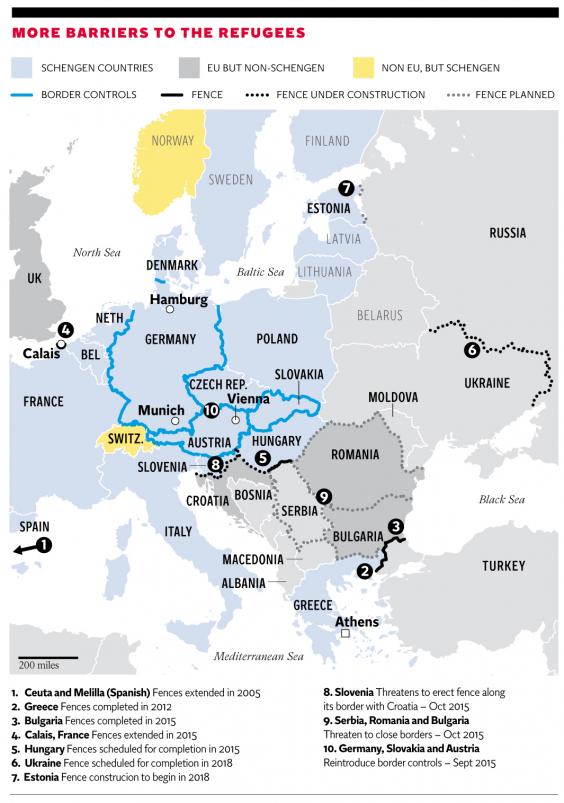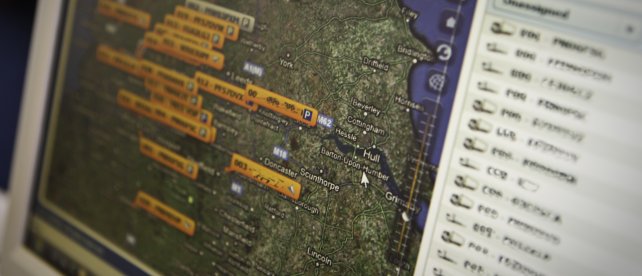Latin America has had an interesting history with democracy. From the “southern cone” to the Rio Grande, the countries of the western hemisphere have endured a political cycle of right-wing fascism that gives way to leftist insurgency and socialist governments which in turn were vulnerable to military coups. The common denominator through it all was a robust U.S. foreign policy interest in the region. Though American foreign policy manifested differently through the decades, no country south of the border can remain unaffected by decisions made in Washington. This was as true in 1820 as it is in 2020, so what will a Biden win mean for Latin America?
Carry a Big Stick
The history of U.S. influence in the region arguably begins with the administration of James Monroe whose “doctrine” is presented to history as an anti-colonial gesture aimed at the powers of Europe. In Latin American and European capitals however, it is seen less as a benevolent hedge against colonialism and more as an argument for giving Washington a free hand in the region.
Whatever Mr. Monroe’s true motivation, its effect was a succession of American Presidents that dealt roughly in the region. James K. Polk needed to win a war against Mexico to secure the southern flank for manifest destiny. William McKinley bowed to political pressure and declared war on Spain, a conflict that handed America its first taste of imperial responsibility. Theodore Roosevelt supported insurrection to create a nation (Panama) favorable to construction of the canal. Even Eisenhower, the ultimate practitioner of a cooperative foreign policy, did not shy away from supporting the overthrow of democratically elected governments in Guatemala and elsewhere. Thereafter, US foreign-policy in Latin America became a balance of fighting communism and fighting drugs; neither of which did much to impede existing oligarchies or bring peace.
While post-war relations brought cooperation and development to those that sought it and coercion and deterrence to that that did not; the Trump administration somehow managed to weave it all together. Characterized by a transient focus on a handful of issues that would impact Trump’s domestic voting base, the United States shifted all its development programs and most of its diplomacy to the Department of Homeland Security, Department of Defense, and the independent Development Finance Corporation; a government agency that guarantees loans to be issued to local investors by local banks. The result was the commoditization of a narrow list of foreign policy priorities that had little to do with anything except providing sound bytes for the never-ending Trump campaign.
Aside from a recurring focus on deterring immigration from Central America, none of Washington’s policies south of the border seemed to have any longevity or credibility. American ambassadors and working level-diplomats continued to make cooperative noises and broadcast neighborly themes of solidarity against endemic poverty, inequality, and crime but their voices were drowned out by the President who cancelled summits, made fun of and threatened leaders that displeased him, subordinated complex relationships to his narrow interests, and seemed unable to focus on anything for meaningful periods of time. Among his short lived fixations were making Mexico pay for a wall they did not want and which would not accomplish its purpose; a renaming of the North American Free Trade Agreement without any of the legislative legwork required for meaningful reforms; a poorly conceived attempt to topple Venezuela’s president by supplying his rival with humanitarian assistance and political top cover; and a very brief “war” against cartels in the Caribbean. The result was a decline in goodwill toward American leadership and a generation of Latin American leaders that got very good at telling Washington what it wants to hear while doing as little as necessary to keep the money flowing.
What Would Joe Biden Do?
A future Biden administration will have its work cut out for it in Latin America. While the job will not be as straightforward as simply rolling back Trump’s policies, there is recognition the United States must rebuild relationships for mutual benefit down South. Immigration is the most obvious starting point. The Trump Administration’s migration policies were among the most comprehensive attempted during his tenure. Building the wall and deploying the military was only part of that. Changing U.S. interpretations of political asylum procedures; imposing legally questionable deportation practices; and altering incarceration standards that saw children separated from their parents and held in horrifying conditions also came into play. But these were only the symptoms of a larger bureaucratic alignment that Biden will fix.
In 2018 the Trump administration crippled U.S. development and cooperation relationships in Central America by prohibiting USAID and parts of the State Department from initiating new programs there. Diplomats report an inability to secure meetings, a lack of involvement in events, and are facing difficult decisions to cut valuable local staff. Coupled with the government shutdown at the outset of that year that affected all but the Defense Department, U.S. engagement with host nation governments has been radically shifted to the security sector at the expense of education, anti-corruption, and judicial reform. In much of Latin America security agencies are the least capable of addressing the preconditions that lead to migration and in some cases have terrible relationships with the exact segments of the population that are most likely to migrate.
The upshot of this is we will see an immediate move to rebalance U.S. foreign aid programs in Latin America in general but in Central America in particular since the focus will be once again on immigration. Rather than reiterating the punitive approach taken by Trump, Biden will likely adopt four policy aims:
- Redouble and revitalize cooperative efforts to help Mexico address its rule of law challenges with special attention to the problem of corruption. Social programs that reduce U.S. drug addiction, illegal firearms flows, and money laundering will reduce the size of the U.S. market and profitability.
- Rebalance U.S. Foreign Aid: U.S. security interests in Central America include a complex mix of countering transnational organized crime, building partner capacity, intelligence sharing, and countering malign influences that impact the stability of governance or impede U.S. objectives. Addressing these threats requires improvements to the capability of law enforcement, refocusing military roles away from traditional law enforcement tasks, improving disaster response capacity, and countering malign influences from abroad.
- Address Conditions that Lead to Migration: The vast majority of Central American migrants to the United States are seeking economic opportunity or to escape violence by either government or criminal organizations. Relatively small investments in economic development, enhancements to fairness and impartiality in both governance and economics, protection of minority rights, and assistance to migrants and refugees can go a long way to prevent Central Americans from making a decision to migrate. USAID has long been the primary foreign policy tool for addressing these problems. Biden will re-enable USAID and breathe life back into relationships with its governmental and non-governmental partners.
- Encourage Regional Integration: Regional integration in Central America is expanding in some very effective ways in the Northern Tier and will be encouraged. Examples include cooperation agreements on immigration, disaster response, human rights, and legislation. Biden will encourage regional initiatives as a way to develop efficiencies in the above areas and more by enabling more meaningful engagement with international organizations and resuming a U.S. leadership role.

Lino Miani is a retired US Army Special Forces officer, author of The Sulu Arms Market, and CEO of Navisio Global LLC.





